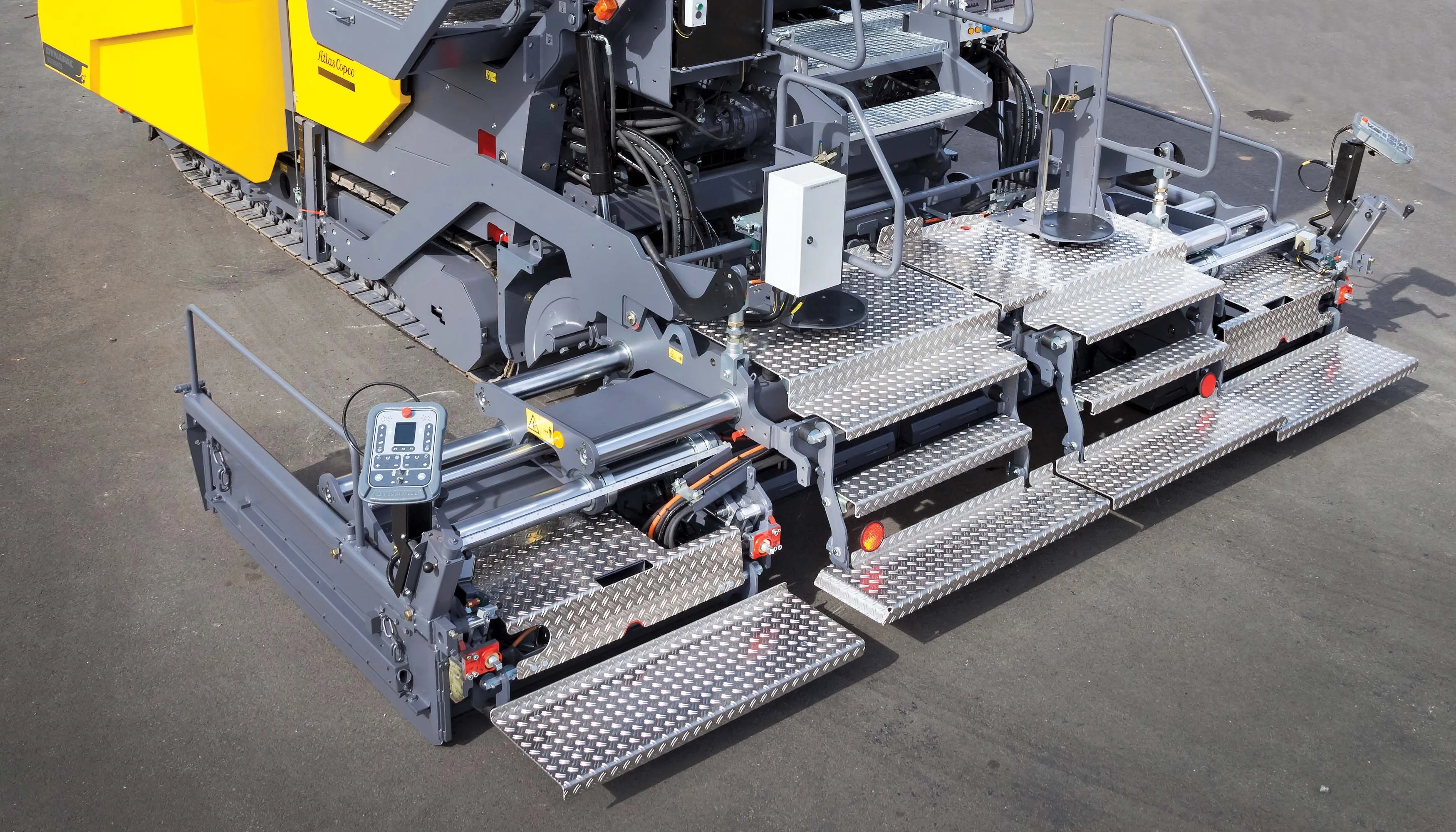
The PaveManager 2.0 package is offered on the firm’s new SD pavers and helps optimise and control paving operations, while it is aided by a new ergonomic dashboard with advanced paving functions. It is available for the recently introduced SD range of pavers and is suited for controlling most paving applications, from city paving to large highway projects. The system is available in three different configurations, from a basic set-up to a complete version incorporating all features. The main new features of the system are VarioSpeed, a load sensing system for improved fuel efficiency, an Automatic Measurement System for continuous monitoring of the material laid, an Automatic Programming function and a new operator interface.
The VarioSpeed package is a sophisticated load sensing system that measures via sensors the load on hydraulic motors and adjusts the hydraulic flow accordingly. The PaveManager computer then adjusts the engine to give the optimum rpm for the load at hand. This cuts fuel consumption, as the engine is always working at optimum load and also reduces working noise and CO2 emissions as well as increasing the engine life.
Meanwhile the new Save & Load feature incorporates a memory function of the currently used paving parameters. Conveyor, auger, tamper, vibration and screed temperature settings can all be saved. This saves time every morning when setting up the paver and five different settings can be stored for future use.
The PaveManager 2.0 package has a new automatic measurement function and the user can enter the paving width and thickness of the asphalt mat and then calculate the volume of asphalt laid. It also shows in real time if a parameter differs from the material planned, reducing costs. With the Paving Calculator the operator can calculate the amount of material needed from the plant to finish the job at the jobsite. Controlling the number of truckloads means that there is no excess material needed, saving costs from reduced waste.








